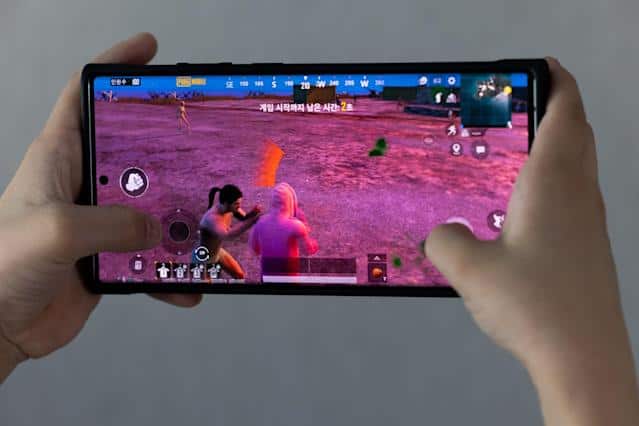Krafton Inc., creator of hit video game PUBG: Battlegrounds, plummeted in its Tuesday debut after pulling off a $3.8 billion initial public offering that was South Korea’s biggest in over a decade.
Its shares fell as much as 20% before closing 8.8% down, becoming the first stock on the KOSPI mainboard to drop on debut this year. The Tencent Holdings Ltd.-backed firm, which cut its offering by more than 1 trillion won ($870 million) after regulators questioned its valuation, is grappling with concerns about its dependence on PUBG for almost all revenue and tightening scrutiny over China’s gaming arena.
Korean Hit-Gamemaker’s IPO Is a Miss With Investors: ECM Watch
Seoul-based Krafton’s debut was the second largest in the country after Samsung Life Insurance Co.’s $4.3 billion listing in 2010. It joins a growing list of tech companies and startups going public in an IPO boom that is reshaping the nation’s corporate landscape. It ended Tuesday with a valuation of 22 trillion won ($19.3 billion), surpassing more established industry names like Nexon Co. and Take-Two Interactive Software Inc.
It sheer size, however, discouraged some investors and Krafton underperformed recent debutantes. Shares of KakaoBank Corp., South Korea’s first internet-only lender, jumped 79% on its debut Friday, exceeding the valuations of the country’s traditional financial groups. There are fears also that Beijing is preparing to crack down on the domestic industry after state media last week decried the “spiritual opium” of gaming, potentially constraining one of PUBG’s biggest markets.
“The size of the share float was too big,” said Choi Jongkyung, an analyst at Heungkuk Securities Co., noting that Krafton’s IPO was more than 1.5 times bigger than that of KakaoBank. “There was also bad news from China during Krafton’s IPO share subscription.”
Founder Chang Byung-gyu’s 14% stake in Krafton had been valued at 3.5 trillion won based on the IPO price, according to the Bloomberg Billionaires Index. He joins a growing list of self-made billionaires in a country where family-run conglomerates have controlled the bulk of wealth for decades. Brian Kim, the founder of messaging giant Kakao Corp., is now the country’s richest person with $13.2 billion, ahead of Samsung Electronics Co.’s Jay Y. Lee.
Krafton’s debut puts it alongside some of its region’s biggest game developers including Nexon, worth about $17 billion, and NCSoft Corp., valued at about $15.5 billion. It’s fairly unique in its extreme reliance on a single title, with PUBG accounting for 96.7% of Krafton’s sales in the first quarter.
“Krafton was one of the biggest IPOs but it wasn’t popular in terms of subscription rate relative to other IPOs because it has so much dependence on one game,” said Paul Choi, head of Korea Research at CLSA.
Despite the rocky start, he was bullish on the company’s long-term potential. “They have 95% of revenue generating outside of Korea unlike other internet and gaming companies that are mostly domestic-focused,” he said. “So this is a rare, truly global new economy firm in Korea.”
The PC and console versions of PUBG had sold more than 75 million copies as of March, and the mobile version was the most-downloaded game in more than 150 countries.
The 14-year-old company, which runs five game studios, is attempting to transform into an entertainment giant by offering animated movies and deep learning-based interactive content around its PUBG fantasy universe. It is planning to launch a new game, PUBG: New State, later this year and a survival horror title, The Callisto Protocol, next year.

